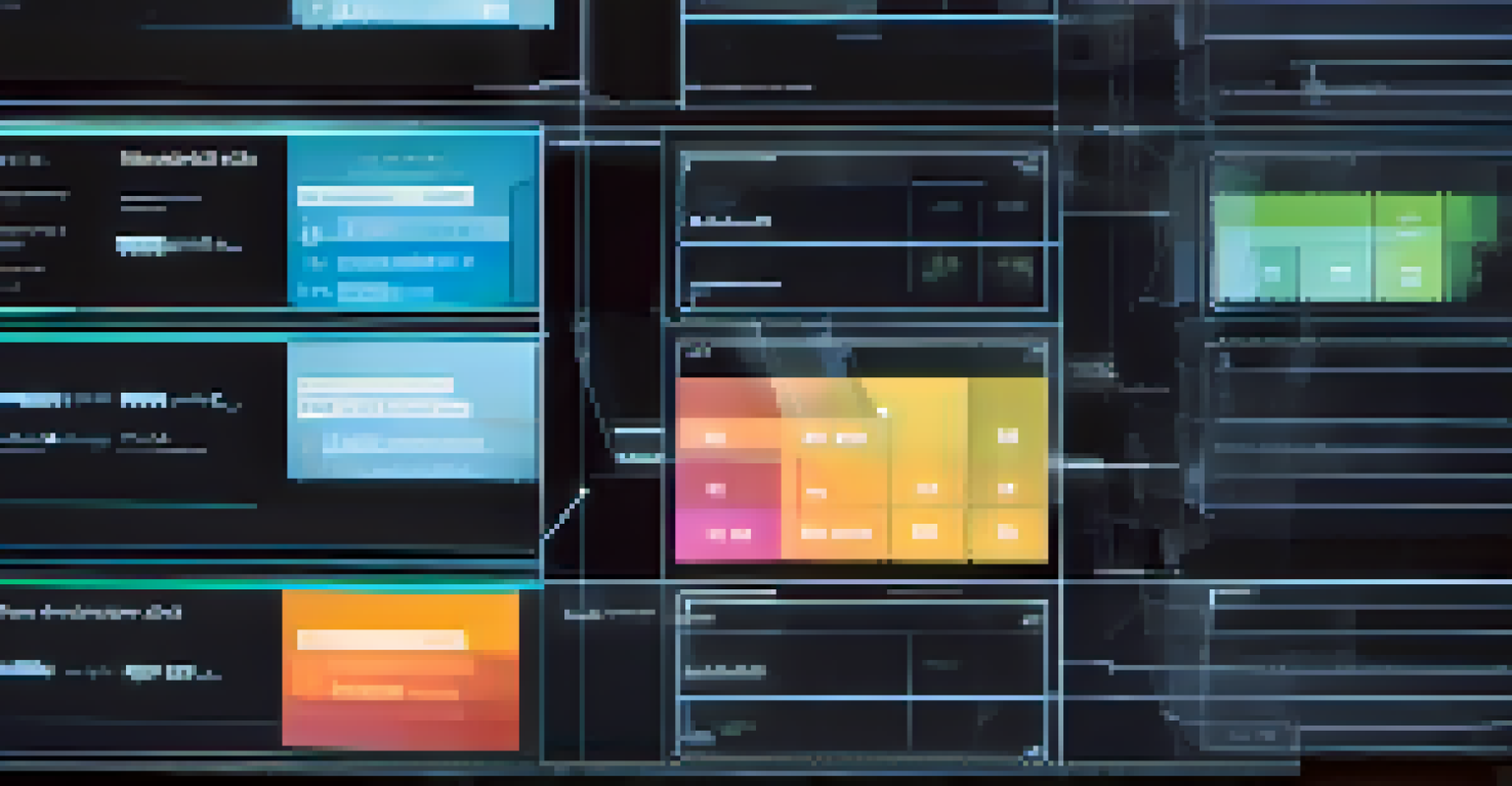How DAOs Enhance Transparency in Cryptocurrency Governance

Understanding DAOs and Their Role in Cryptocurrency
Decentralized Autonomous Organizations, or DAOs, represent a new way of organizing and governing projects in the cryptocurrency space. Unlike traditional organizations, DAOs operate on smart contracts, which are self-executing contracts with the terms directly written into code. This structure allows for a greater level of decentralization and community involvement, making decisions more democratic.
Transparency is the cornerstone of trust in any organization.
In a typical DAO, members hold tokens that grant them voting power, allowing them to propose and vote on changes or initiatives. This means that every participant has a voice, transforming the governance process into a collective effort. This approach not only encourages participation but also ensures that decisions reflect the community's interests rather than a select few individuals.
By leveraging blockchain technology, DAOs can maintain a transparent record of all transactions and decisions made. This feature significantly reduces the chances of manipulation and fosters trust among community members, which is essential for the success of any cryptocurrency project.
How Transparency is Built into DAOs
Transparency in DAOs stems from the inherent characteristics of blockchain technology. Every transaction and decision made within a DAO is recorded on the blockchain, creating an immutable and publicly accessible ledger. This means that anyone can audit the activities of the organization at any time, which is a far cry from traditional organizations where information is often siloed and less accessible.

Moreover, the use of smart contracts ensures that the rules governing the DAO are clear and unambiguous. Once set, these rules are executed automatically without the need for intermediaries, reducing the risk of human error or bias. This level of clarity not only builds trust but also encourages more informed participation from community members.
DAOs Foster Democratic Governance
Decentralized Autonomous Organizations empower community members with voting power, ensuring collective decision-making.
For example, if a DAO decides to allocate funds for a new project, the details of this decision—including who voted, how much was allocated, and for what purpose—are all publicly available. This level of transparency empowers members to hold each other accountable and fosters a culture of openness.
The Benefits of Increased Transparency in Governance
Increased transparency within DAOs leads to several benefits, particularly in governance. First and foremost, it builds trust among community members. When participants can easily access information about decisions and transactions, they are more likely to engage actively and support the organization's initiatives.
The more transparent we are, the more accountable we are.
Additionally, transparency can lead to better decision-making. With all members having access to the same information, discussions can be more informed and inclusive. This not only enhances the quality of proposals but also helps ensure that they align with the community's values and goals.
Lastly, transparency can mitigate risks associated with misconduct or mismanagement. When actions are visible and auditable, it becomes significantly harder for individuals to act against the interests of the organization without being held accountable. This protective layer can be a game-changer in the often volatile world of cryptocurrency.
Challenges to Transparency in DAOs
Despite the inherent transparency that DAOs offer, challenges still exist. One significant issue is the complexity of the information shared. While blockchain data is accessible, it can be difficult for the average participant to interpret and understand, potentially leading to misinformation or confusion.
Another challenge is the risk of centralization within decentralized systems. If a small group of members holds a significant portion of the voting tokens, they can disproportionately influence decisions, undermining the very principles of transparency and democracy that DAOs aim to uphold. This can create a disconnect between the governing body and the broader community.
Transparency Builds Trust
The blockchain's immutable ledger allows for public auditing of decisions, enhancing trust among DAO participants.
Finally, technological barriers can also hinder transparency. Not all community members may have the technical expertise to navigate blockchain platforms or understand smart contracts, which can lead to unequal participation. Addressing these challenges is essential for ensuring that transparency remains effective and inclusive.
Real-World Examples of Transparent DAOs
Several DAOs have successfully demonstrated the power of transparency in governance. For instance, MakerDAO, which manages the DAI stablecoin, allows its members to vote on various proposals, with all voting records and financial transactions publicly available on the blockchain. This openness has helped maintain trust and stability in the DAI ecosystem.
Another example is Gitcoin, a platform focused on funding open-source projects. Gitcoin’s DAO enables community members to decide which projects receive funding, and the entire decision-making process is transparent. Members can see how funds are allocated and can participate in discussions about which projects to support, fostering a sense of ownership and responsibility.
These examples illustrate how transparency can enhance community trust and engagement, leading to more sustainable and successful projects in the cryptocurrency space. They also serve as a blueprint for other DAOs looking to implement transparent governance practices.
The Future of Transparency in Cryptocurrency Governance
As the cryptocurrency landscape continues to evolve, the role of DAOs in promoting transparency will likely grow. With increasing scrutiny from regulators and the public, being transparent will not only be a best practice but also a necessity for the survival of many projects. DAOs stand at the forefront of this shift, offering a model that can adapt to these changing demands.
Moreover, as technology advances, we can expect to see new tools and platforms that enhance transparency. Innovations in blockchain analytics, for example, can make it easier for community members to understand complex data sets and participate meaningfully in governance. Such advancements will empower even more individuals to engage in the decision-making process.
Challenges to Effective Transparency
Despite their potential, DAOs face issues like information complexity and centralization that can hinder true transparency.
Ultimately, the future of cryptocurrency governance appears to be leaning towards more transparency and inclusivity, driven by the principles of DAOs. This evolution not only benefits the projects themselves but also fosters a more ethical and accountable ecosystem for everyone involved.
Conclusion: Embracing Transparency with DAOs
In conclusion, DAOs represent a promising shift towards greater transparency in cryptocurrency governance. By leveraging blockchain technology and smart contracts, these organizations empower community members to participate in decision-making processes openly and democratically. This transparency not only builds trust but also enhances the quality of governance and mitigates risks associated with misconduct.
While challenges remain, the successes of DAOs like MakerDAO and Gitcoin serve as powerful examples of what can be achieved when transparency is prioritized. As we look to the future, it’s clear that embracing transparency will be crucial for the growth and sustainability of cryptocurrency projects.

As stakeholders in this evolving landscape, it’s our responsibility to advocate for and participate in transparent governance practices. By doing so, we can help create a more equitable and trustworthy cryptocurrency ecosystem for all.